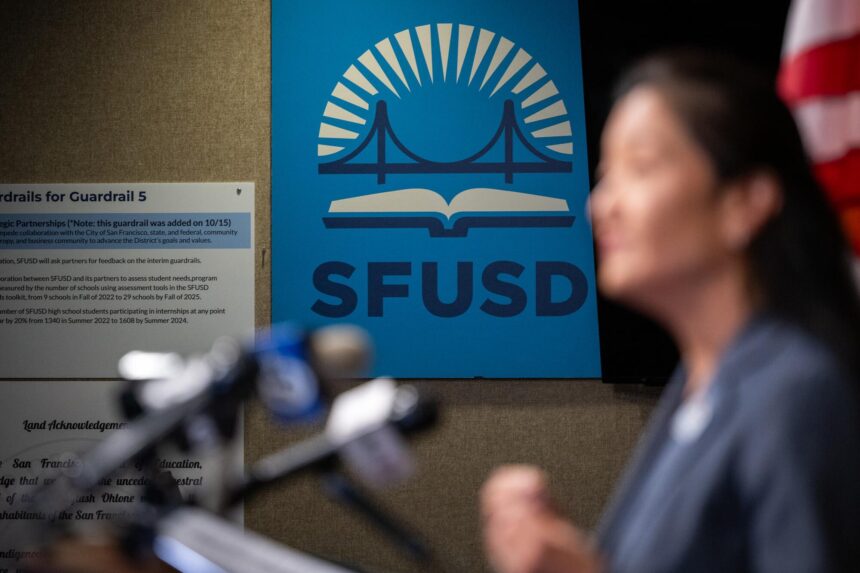San Francisco Unified School District Adjusts Ethnic Studies Curriculum for Upcoming Academic Year Amid Review Process
As the new academic year approaches, the San Francisco Unified School District (SFUSD) is revisiting its ethnic studies curriculum to better align with its commitment to inclusivity and comprehensive education. Amid ongoing discussions about the role of ethnic studies in fostering understanding and equity, the district is making significant adjustments to its plans for the upcoming school year. These changes come at a time when educators, parents, and students alike are advocating for a curriculum that accurately reflects the diverse histories and cultures of the community. This article explores the SFUSD’s revised strategies for ethnic studies and the implications for students and educators as they navigate this pivotal educational initiative.
SF Unified Revises Ethnic Studies Curriculum for Enhanced Inclusivity and Engagement
In an effort to foster a more inclusive educational environment, San Francisco Unified School District is embarking on a comprehensive revision of its ethnic studies curriculum for the upcoming school year. The district has engaged community stakeholders, educators, and cultural experts to ensure that the new curriculum not only reflects a diverse array of perspectives but also enhances student engagement. Key changes will focus on integrating historical narratives that celebrate the contributions of various ethnic groups, as well as addressing contemporary issues within these communities. The reimagined curriculum aims to strike a balance between academic rigor and relatability, making it more accessible for all students.
To gather feedback and refine the curriculum, SF Unified has scheduled a series of workshops and forums, encouraging input from parents, students, and educators. The anticipated revisions will also include the following elements:
- Inclusive Materials: Texts and resources reflecting diverse cultural histories
- Interactive Learning: Activities promoting critical thinking and collaboration
- Community Partnerships: Collaborations with local organizations to support program initiatives
| Focus Area | Objectives |
|---|---|
| Content Diversity | Broaden representation of ethnic histories and contributions. |
| Engagement Strategies | Utilize experiential learning to enhance student interaction. |
| Feedback Mechanism | Establish ongoing channels for stakeholder input on curriculum effectiveness. |
Community Feedback Shapes New Ethnic Studies Framework in Bay Area Schools
In response to community input, San Francisco Unified School District has taken significant steps to refine its ethnic studies curriculum for the upcoming school year. Parents, educators, and community leaders have engaged in extensive discussions, emphasizing the necessity for a curriculum that accurately represents the diverse histories and experiences of all students. Some of the key themes emerging from these discussions include:
- Inclusion: Ensuring representation from a variety of ethnic groups.
- Interactivity: Encouraging project-based learning that fosters dialogue.
- Cultural Relevance: Integrating local histories and contemporary issues.
The district has announced plans for pilot programs and workshops to gather further insights from the community before finalizing the curriculum. Educational stakeholders are particularly focused on establishing a framework that promotes equity and understanding among students. A preliminary review highlighted the following priorities based on community feedback:
| Priority | Description |
|---|---|
| Student Engagement | Developing curricula that connect students to their own backgrounds. |
| Teacher Training | Providing educators with the tools needed to teach sensitive topics. |
| Community Involvement | Collaborating with local organizations and leaders. |
Expert Recommendations for Implementing Effective Ethnic Studies Education in Diversity-Focused Curriculum
To ensure the successful implementation of ethnic studies within a diversity-focused curriculum, experts emphasize the importance of a multi-dimensional approach. This includes integrating various pedagogical strategies that engage students both intellectually and emotionally. Key recommendations include:
- Culturally Relevant Teaching: Incorporate materials and perspectives from diverse ethnic backgrounds to make learning relatable.
- Engagement with Community Leaders: Build partnerships with local organizations to facilitate real-world learning opportunities.
- Interdisciplinary Framework: Connect ethnic studies with other subjects such as history, literature, and social sciences for a holistic understanding.
Moreover, ongoing professional development for educators is crucial to equip them with the tools necessary for delivering effective ethnic studies content. Regular workshops focusing on inclusive pedagogies can foster a supportive learning environment. Schools should also consider establishing a feedback mechanism directly involving students and parents to gather insights on curriculum effectiveness. The following table outlines essential components for an inclusive ethnic studies curriculum:
| Component | Description |
|---|---|
| Curriculum Diversity | Inclusion of varied cultural narratives and histories. |
| Student-Centered Learning | Emphasis on student voices in shaping curriculum content. |
| Assessment Methods | Diverse evaluation techniques that reflect cultural understanding. |
In Retrospect
As the San Francisco Unified School District moves forward with its plans to implement an ethnic studies curriculum for the upcoming school year, the adjustments made reflect a commitment to inclusivity and responsiveness to community feedback. With ongoing reviews and modifications, the district aims to ensure that the curriculum not only meets educational standards but also resonates with the diverse student body it serves. As educators and stakeholders engage in this crucial dialogue, the focus remains clear: fostering a deeper understanding of cultural histories and social justice principles among students. As the district finalizes its approach, the impact of these changes will be closely watched, with hopes that they will pave the way for a more equitable educational experience for all. The implementation, scheduled for the next school year, promises to be a pivotal moment for both students and educators in the quest for a more inclusive academic framework.









